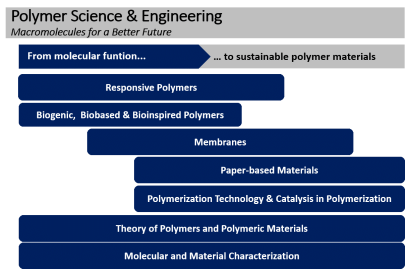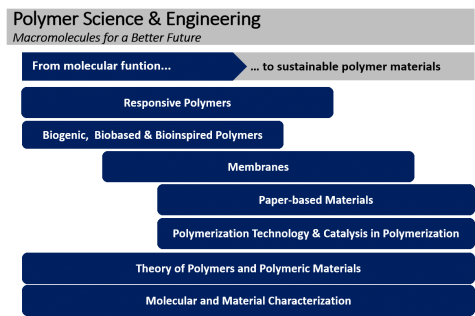Polymer Science & Engineering – Macromolecules for a Better Future
Polymers, i.e. macromolecules, are a key component for many materials and technologies in our daily life. Applications of polymers span from construction materials, coatings and adhesives to membranes and materials used in medicine & pharmaceutics. Moreover, functional polymers are used as additives and represent essential building blocks for nanotechnology, in biotechnological applications and for drug-delivery systems. They are not only man-made, but also omnipresent in nature, represented by e.g. polysaccharides such as cellulose in wood, proteins or DNA. As new challenges arise in the context of material and system design, degradation, recycling, and microplastic pollution, polymer science & engineering strategies are increasingly focusing on strategies to address them in order to develop a sustainable and bright future.
The research area Polymer Science & Engineering – Macromolecules for a Better Future spans from fundamental research in macromolecular chemistry to application-oriented developments, bridging the gap between understanding function at the (macro)molecular level and functional and sustainable materials & devices, both in experiment and theory. Research topics progress from functional & circular paper-based materials, bio-inspired polymers, understanding and applying specific polymerization technologies such as high-pressure and enzymatic polymerizations including process simulation and monomers from waste to biogenic and biobased polymers and additives in novel applications, and design of functional nanopores and membranes.




